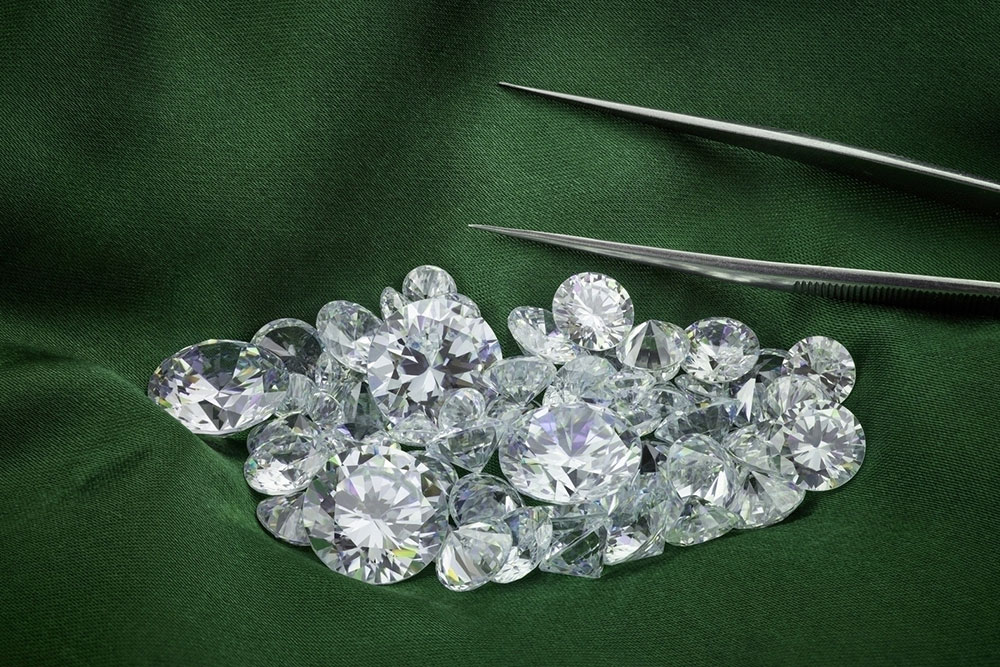6 mistakes to avoid when buying lab-grown diamonds

Lab-grown diamonds are becoming increasingly popular by the day. The main reasons for this are that they cost less than natural diamonds (despite being just as pure) and are ethically sourced. However, when it comes to purchasing lab-grown diamonds, buyers should avoid certain mistakes to make sure that they are purchasing the right piece and to avoid suffering a financial blow. Here are six mistakes to avoid when buying lab-grown diamonds.
Not going to a good jeweler
Diamonds are among the most precious and priciest things in the world, regardless of whether they are natural or lab-grown. The price of lab-grown diamonds starts somewhere around a thousand dollars for a carat depending on its quality. So, when one is about to make such a significant purchase, it is crucial to approach a trusted seller. To choose a good jeweler, one can do their due diligence and check for online customer reviews. Overlooking this step could be a costly mistake as one could get cheated into buying a fake or a blood diamond. One could even get conned into paying a high price for a poor-quality diamond.
Not checking the 4Cs of the diamond
There is a norm that all buyers must follow when buying diamonds, whether natural or man-made. This norm is checking the 4Cs of the diamond to understand its quality and pricing. These 4Cs are cut, carat, clarity, and color, and they differ for every diamond.
- Cut : How a diamond is cut and polished determines the way it will refract light, impacting its shine. A few popular cuts (shapes) that diamonds are usually available in include princess cut, round cut, and Asscher cut.
- Carat : This refers to the size and the weight of the diamond.
- Clarity : This denotes any flaws the diamond might have, like air cavities.
- Color : Diamonds can also have slight color variations, which are graded from D to Z. Here, D stands for the most colorless diamond, which is also the rarest.
Keeping in mind all these aspects when buying a lab-grown diamond can help one determine whether a piece is worth its price.
Neglecting to get a certificate for the diamond
All genuine diamonds, whether natural or lab-grown, are given a certificate against their 4Cs to confirm their authenticity. This certificate is issued by top institutes, such as the International Gemological Institute (GIA) and the Gem Certification and Assurance Lab (GCAL.) One of the biggest mistakes individuals often make when buying lab-grown diamonds is forgetting to obtain this certificate. Ideally, the jeweler should proactively provide this certificate to the buyer at the time of purchase. However, if a jeweler forgets or does not give it, the buyer must remember to ask for it.
Buying lab-grown diamonds certified by unknown labs
While an authentic diamond must have a certificate, it is also important to check whether the certificate itself is authentic. So, when a buyer is presented with the diamond’s certificate, they must check which lab has provided it. For this, one must do some basic research about the authentic labs that can provide these certifications. Some of these labs include the International Gemological Institution (IGI), GIA, and GCAL.
Not doing proper research before buying
Another crucial mistake to avoid before buying lab-grown diamonds is not doing proper research about them. Without proper prior research, one could end up buying the wrong kind of diamond or even a white diamond. Often, without proper research, individuals also end up buying the first diamond they are shown. If, instead, one goes to a jeweler who has the required knowledge and expertise, one can look at several pieces and choose the best one. One can also ask the jeweler to show pieces that would best fit their preferences and budget (like a ring or a necklace).
Failing to check diamonds under natural light
When one goes to purchase a lab-grown diamond, most jewelers show the pieces under the store’s white or yellow lights. These lights are usually extra bright and make the diamond appear more sparkly. To confirm that they are making the right choice, buyers should take a look at the pieces under natural light. This way, they will be able to see the true sparkle of the diamond.